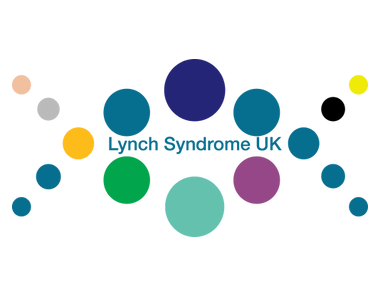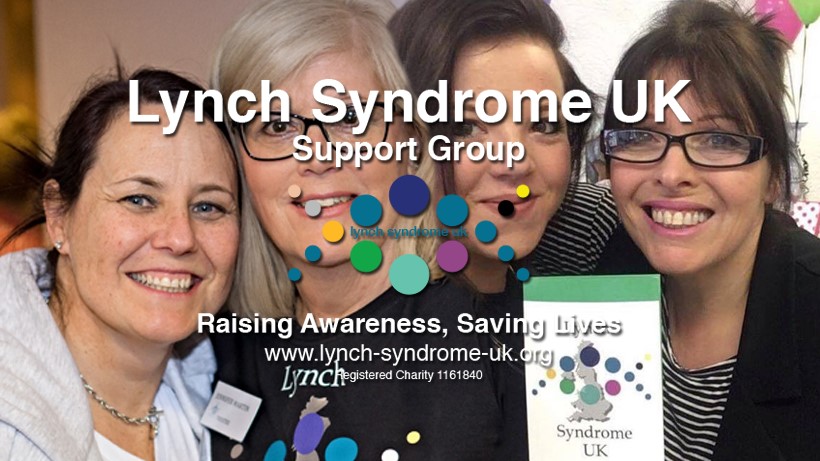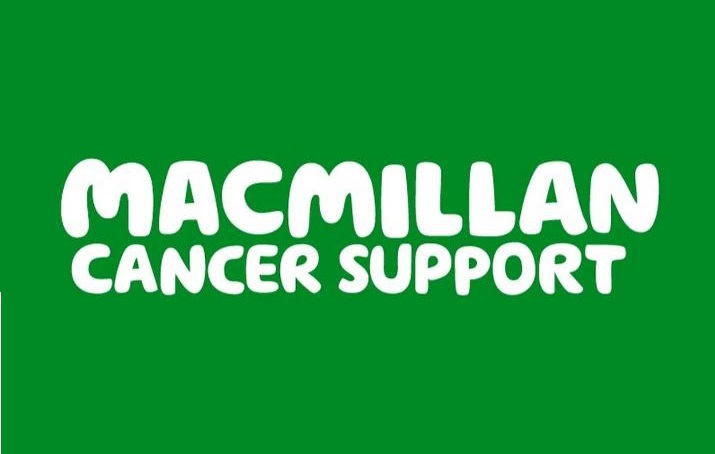Welcome to the Lynch syndrome registry pilot study website!
The Lynch syndrome registry pilot study led by The Cancer Screening and Prevention Research Group at Imperial College London, records information about the health status of individuals with Lynch syndrome. A select group of Lynch syndrome patients who have previously taken part in the Cancer Prevention Project 3 (CaPP3) trial will be invited to participate in the pilot study from across four hospitals in England.
Uniting leading researchers in bowel cancer and genetics, with healthcare professionals and patient representatives, it is our goal to help develop a national registry that will support vital Lynch syndrome research and help build an efficient national system to identify people with Lynch syndrome, to provide appropriate surveillance follow-up and help to prevent bowel and other cancers or to enable an earlier diagnosis.
Lynch syndrome can run in families. It increases your risk of being diagnosed with bowel cancer, as well as other cancers including endometrial (womb), ovarian, stomach, bladder, kidney, and skin cancers. This condition is diagnosed by having a genetic test. The Lynch syndrome registry records and analyses important information about people with Lynch syndrome. This helps to understand how people with Lynch syndrome are looked after and cared for across England. All information is held on a secure and confidential computer database.
The focus of the Lynch syndrome registry is to address the differences in access, quality and timeliness of regular check-ups that people with Lynch syndrome in England currently experience. The registry will collect information from people with Lynch syndrome and help us to better understand how these people are currently being monitored and managed. The registry will ultimately be an efficient system that with the help of the bowel cancer screening programme will allow nationally coordinated care for you and others with Lynch syndrome. It will also become a valuable central research resource that could be used to support other studies.
Learn more about data protection and our policies to help protect your personal data here.
A pilot study is a small-scale test of the methods and procedures to be used on a larger scale, in this case in a national Lynch syndrome registry. This small-scale pilot study will allow us to evaluate the feasibility of our plans and to optimise the data collection process and functionality of the registry database. Data collected will enable us to answer some key initial questions and aid in the development of the national registry.
As we develop the registry, we are initially only inviting people with Lynch syndrome in England who participated in the CaPP3 trial to join. Your participation will assist us with developing the functions of the registry and help to answer some valuable initial research questions. We would eventually like to include as many people with Lynch syndrome in a national registry as possible, to ensure we understand the variation in care experienced across the country.
If you would like to take part, we ask that you please contact your local research team via the details provided in your invitation pack. They will ask you to sign the enclosed consent form in your invitation pack and if you wish they can arrange a call with you (either via telephone or video), during which you will be given the opportunity to go through the study documentation you have received and ask questions. We would then ask you to complete the enclosed health questionnaire, which should be returned with the consent form using either the pre-paid addressed envelope or scanned and sent via the email address provided on this webpage. You should keep this information sheet for future reference and a copy of the signed consent form will be provided for you to keep.
Involvement in the registry will not require any additional hospital visits or donation of any biological samples outside of your usual screening visits. You should continue to attend your screening/surveillance appointments as usual. We will keep you informed about future studies being conducted within the registry pilot study and how you would be able to participate.
Participation in the Lynch syndrome registry pilot study is entirely voluntary. The quality of medical care you receive in the future will not be affected by your decision.
If you agree to take part, you will be able to withdraw from the Lynch syndrome registry pilot study at any time without giving a reason, and this will not affect your healthcare in any way. If you would like to withdraw at any point, please notify the study team via the contact details provided.
If you withdraw your consent to taking part, we will remove all of your identifiable information from the registry and will keep a record of your withdrawal and your registry ID number. Any of your information that has already been used in any analyses prior to your withdrawal cannot be removed to ensure published results can be replicated.
The information we would like to collect and hold in the Lynch syndrome registry includes your name, date of birth, NHS number, contact details (email or postal address), details of your GP, hospital and/or genetic centre, as well as some medical information, such as your Lynch syndrome related medical history (including MMR gene information) and details from colonoscopy examinations, including dates and results.
At a minimum, we will need permission to collect information about your current and future cancer screening. In addition, you may choose to share with us information about your past relevant medical history and previous screening/surveillance examinations, which will help improve the quality of our registry and answer additional research questions that would help understand what needs to be done to improve the care of people with Lynch syndrome. You can document your choice on the enclosed consent form.
At each participating hospital or genetic centre, a local study team member will collect relevant information from your health records and questionnaire. This will then be transferred and kept on a secured database on Imperial College London servers.
The information in the Lynch syndrome registry pilot will be used to optimise the data collection process and functionality of the registry database and help us get an overall picture of how people with Lynch syndrome are currently being monitored and cared for across several NHS sites in England. We will then be able to use the information collected to assist in the development of a national Lynch syndrome registry.
There are no risks of physical harm associated with taking part in the Lynch syndrome registry pilot study. However, as the registry will be storing some personal information, there is a risk of a breach of confidentiality. The risks stemming from a data breach include; patient distress or loss of patient confidence and fraud by way of identity theft. To minimise the possibility of this occurring, several policies and procedures are in place to help protect participant information and to ensure that any personal information that could identify individuals remains strictly confidential. A data security policy is in place detailing precautions for safe operation such as encryption (changing the data to make it unreadable), access restrictions (only allowing the data to be accessed by a small number of the study team), and regular security audits and checks.
When personal information is transferred from NHS hospitals to the Lynch syndrome registry, data will be transferred either digitally via the secure NHS email system or physically using encrypted portable storage devices. The team at the Cancer Screening and Prevention Research Group have collected and held this kind of healthcare data for numerous studies over many years and are very experienced with handling personal medical data. In the event that there is a breach of confidentiality, all participants will be notified using the contact details provided at the time of consent.
Possible benefits to participants include being part of research that is likely to help improve the care and experiences of people with Lynch syndrome. The registry will help to identify what changes need to be made to enable people with Lynch syndrome to get the surveillance they need to protect against bowel cancer. Participants might feel empowered and fulfilled knowing that their contributions will help lead to positive changes in the lives of present and future generations in Lynch syndrome families.
Any research results from the registry will be displayed on the ‘research’ page at www.lynchregistry.org.uk. Research results will be presented to the research community and service providers in scientific literature and presented at national and international scientific conferences, clinical meetings and patient conferences. We will share the results with patients and the Lynch syndrome community at relevant meetings and events (e.g. Lynch Syndrome UK annual patient meeting), via our contacts at Lynch Syndrome UK and Bowel Cancer UK with the help of our patient representatives and via social media (Twitter). Individual registry participants will not be identifiable from any reports or publications placed in the public domain.
In the future, anonymised information from the Lynch syndrome registry pilot study may also be used to support other studies in the UK, Europe and outside of the European Economic Area, that aim to conduct further research to improve care for Lynch syndrome patients, but only if you give specific consent for this. Further information about data sharing and international transfers can be found in our privacy notice and transparency statement.
The use of any individual-level, identifiable information from the Lynch syndrome registry in future studies will require your consent and the approval of the Lynch syndrome registry pilot study steering committee.. You can choose on the consent form if you would like your anonymised, non-identifiable information to be used to support future research studies in this way (question 11) and also if you would like to be contacted about taking part in any other future relevant research studies (question 12). This consent form is to take part in the Lynch syndrome registry pilot study only. If you do choose to either later take part in a future national registry or other studies after having indicated so in question 12, you will be asked to consent separately for these.
All the data we collect will be kept strictly confidential and in accordance with the General Data Protection Regulation (GDPR), https://gdpr.eu/ and Data Protection legislation.
We would also like to know whether you have been diagnosed with a condition, such as cancer, in the future. We can do this by collecting information from the NHS systems. In order to collect this information, we will need to provide NHS Digital your date of birth and NHS number, which are already held by them; these details will be treated in confidence and in accordance with the Data Protection legislation. Registry information will not be released to any other organisations such as insurance companies.
The information held in the Lynch syndrome registry pilot study will be accessible to a limited number of local and central study team members, including a very small number of authorised experienced staff at the Cancer Screening and Prevention Research Group as well as local research staff who would already have access to your medical data. Local research staff will only have access to information for their own patients and they will not have access to information collected from other sites. Data sharing agreements will be in place with all relevant organisations and personal data will not be shared outside of the direct research team and sponsor representatives. Further transparency and data confidentiality information can be found in our privacy notice and transparency statement.
It will be our utmost priority to ensure that no harm is done by taking part in this research. If you are harmed by taking part in this research project, there are no special compensation arrangements. If you are harmed due to someone’s negligence, then you may have grounds for a legal action. Regardless of this, if you wish to complain, or have any concerns about any aspect of the way you have been treated during the course of this study then you should immediately inform the Chief Investigator, Professor Amanda Cross, using the contact details below. The normal NHS complaints mechanisms are also available to you.
Several national experts reviewed the scientific plan before funding was awarded and the study has undergone review with the sponsor, Imperial College London. The registry pilot study will be overseen by an independent Trial Steering Committee. All research in the NHS is overseen by the Health Research Authority (HRA) and looked at by an independent group of people, called an NHS Research Ethics Committee, to protect your safety, rights, wellbeing, and dignity. The registry has been reviewed and given a favourable opinion by an NHS Research Ethics Committee.
Professor Amanda Cross, from the Cancer Screening and Prevention Research Group at Imperial College London is the chief investigator managing the Lynch syndrome registry pilot study along with several academic and clinical co-investigators including Professor Sir John Burn from Newcastle University who leads the Cancer Prevention Programme Project 3 (CaPP3) trial, and Dr. Kevin Monahan from the North West London Family Cancer Clinic. The Cancer Screening and Prevention Research Group has extensive experience in conducting clinical trials and handling patient data; our research has directly influenced both national and international guidelines on bowel cancer screening and surveillance. The CSPRG team consists of statisticians, epidemiologists, data analysts, clinical trial managers and research support staff.
As the registry is an important and long-term project, it receives funding from a number of organisations and institutions and our current funders include Cancer Research UK (https://www.cancerresearchuk.org/) and 40tude (ttps://www.40tude.org.uk/).







